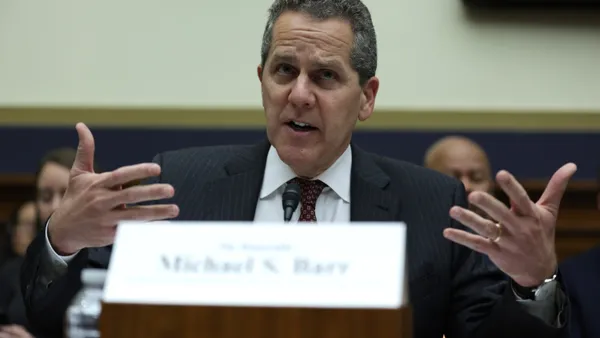Former Celsius CEO Alex Mashinsky was arrested Thursday and charged with securities, commodities and wire fraud and attempting to manipulate crypto currencies.
"Mashinsky misrepresented, among other things, the safety of Celsius's yield-generating activities, Celsius's profitability, the long-term sustainability of Celsius' high rewards rates, and the risks associated with depositing crypto assets with Celsius," prosecutors said in a charging document.
Celsius’ chief risk officer, Roni Cohen-Pavon, also was arrested. He and Mashinsky could face decades in prison, according to CNBC.
Meanwhile, Celsius — which declared bankruptcy a year ago to the day — agreed to pay $4.7 billion in a settlement with the Federal Trade Commission that would permanently ban the crypto exchange from “offering, marketing or promoting any product or service that could be used to deposit, exchange, invest or withdraw any assets.”
Incidentally, Celsius owes approximately $4.7 billion to roughly 1.7 million customers whose funds were frozen when the exchange halted withdrawals in June 2022.
The settlement won’t be paid until Celsius returns what’s left of customer assets in bankruptcy proceedings, the FTC said. On that front, the company is expected to sell its altcoin holdings or convert them to Bitcoin or Ether this month, The Wall Street Journal reported.
“Celsius touted a new business model but engaged in an old-fashioned swindle,” Samuel Levine, director of the FTC’s Bureau of Consumer Protection, said in a statement Thursday. “Today’s action banning Celsius from handling people’s money and holding its executives accountable should make clear that emerging technologies are not above the law.”
Mashinsky and fellow Celsius co-founders S. Daniel Leon and Hanoch “Nuke” Goldstein were named as defendants in the FTC’s suit.
The FTC was just one of three federal agencies — along with the Securities and Exchange Commission and Commodity Futures Trading Commission — to sue Mashinsky on Thursday.
The SEC alleged that Mashinsky and his company, between 2018 and 2022, made misleading statements meant to encourage investors to buy its crypto token, CEL, and put money into Celsius’ Earn Interest Program in return for up to 18% interest annually.
The regulator also said Mashinsky misrepresented Celsius’ financial position, asserting he falsely claimed the company made $50 million from an initial coin offering but actually raised less than 65% of that total.
The value of CEL fell roughly 6% to about 15 cents in the hours after the lawsuits and arrest became public, Bloomberg reported. That’s down from about $8 in June 2021.
The SEC, CFTC and FTC are not the first regulators to sue Mashinsky. New York Attorney General Letitia James sued the former Celsius executive in January, alleging Mashinsky misrepresented his exchange’s safety by saying the platform was “safer than a bank.”
That lawsuit seeks damages, restitution and disgorgement from Mashinsky and aims to prohibit him from doing further business in New York.
Lawyers for Celsius and Mashinsky didn’t immediately respond to requests for comment from Bloomberg or The Wall Street Journal.











